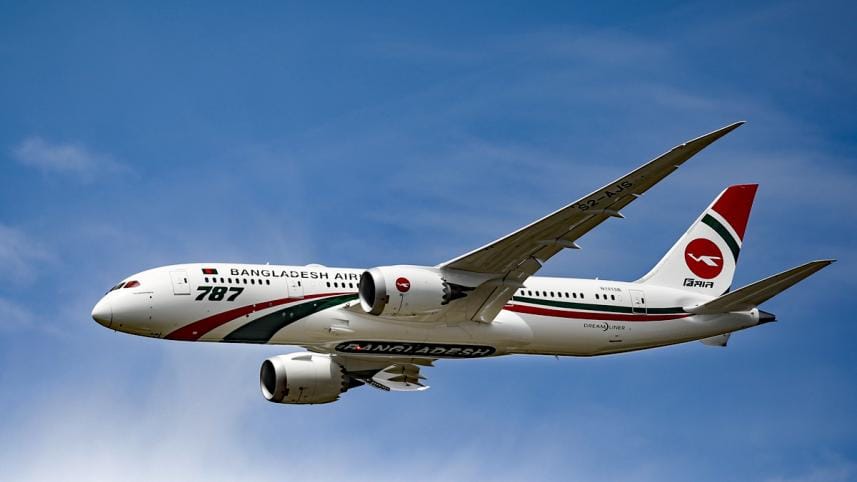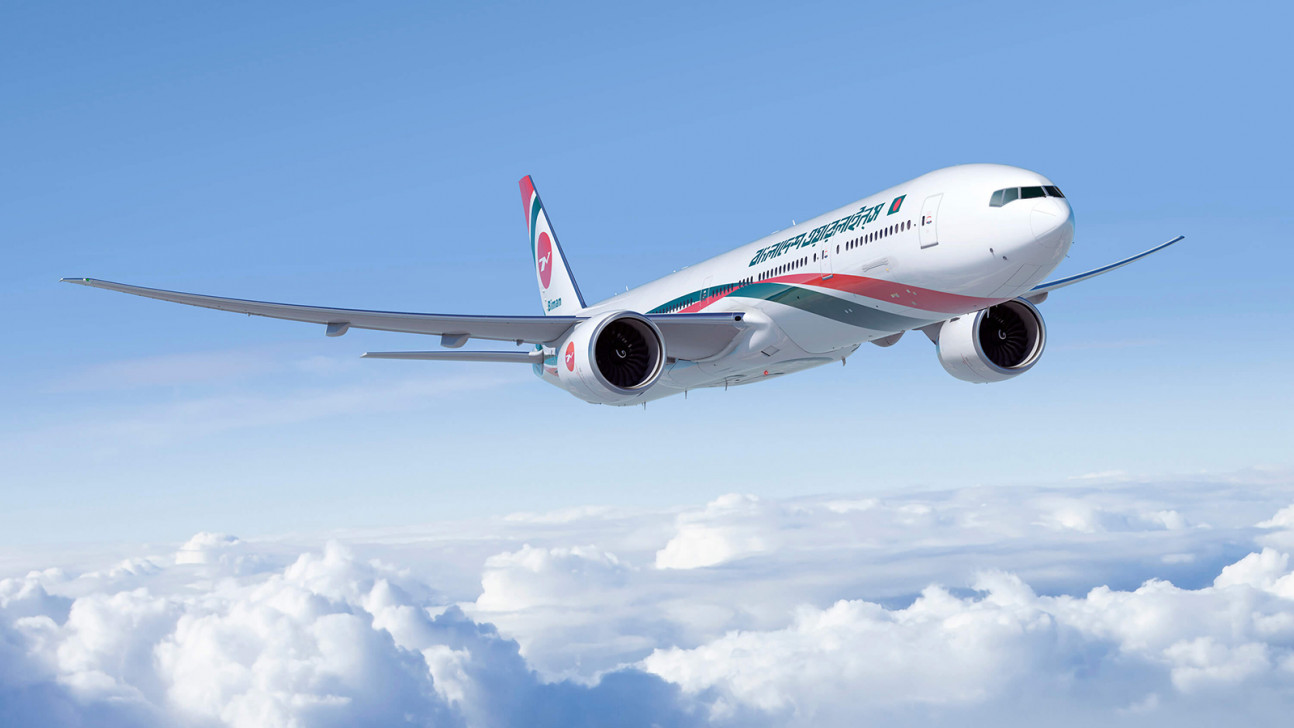Are Biman’s ‘ticket syndicates’ solely to blame for high airfares?

Biman Bangladesh Airlines has recently been scrutinised for alleged ticket syndicates that manipulate fares through artificial shortages. Reports indicate that senior Biman officials were involved in inflating ticket prices for Malaysia-bound flights in May last year. This issue has sparked widespread criticism, particularly from expatriate workers who rely on affordable air travel. To understand this controversy, it is essential to examine the mechanisms behind Biman's pricing strategies and the broader challenges within Bangladesh's aviation sector.
Passengers frequently complain that Biman does not sell tickets even when flights appear to have available seats. A combination of fare control strategies and market practices drives this perception. For instance, Biman, like many global carriers, uses a nesting strategy that categorises tickets into hierarchical fare classes. These classes are dynamically adjusted based on demand. When demand is high, lower fare classes are withheld, making it seem like cheaper tickets are unavailable despite empty seats. Additionally, travel agents who have already met their sales targets may have little incentive to continue selling Biman tickets, further distorting availability. The situation is compounded by the "sugar class policy" on certain routes—some seats are withheld for passengers without checked baggage due to weight restrictions. Since these passengers are rare on long-haul flights, seats often go unsold, reinforcing the impression of inefficiency of the airline.
Recent social media comparisons have pointed out stark disparities in fares. One post showed that on the same date, Biman's ticket from Dhaka to Riyadh was more than four times costlier than Air India's from Kolkata to Riyadh. While such comparisons evoke strong reactions, they overlook structural issues. Bangladesh's aviation environment is far more expensive than that of its regional counterparts. The price of jet fuel in Bangladesh is higher than that in most neighbouring countries, including India. Additional civil aviation surcharges in Bangladesh can reach 72 percent annually on delayed payments, substantially higher than the 8-18 percent charged in neighbouring countries. Biman also lacks subsidies or fee waivers that other regional airlines enjoy.
The market imbalance also plays a significant role. With only 38 airlines operating in Bangladesh compared to 50 in India, the demand often outpaces supply. The recent cancellation of 58 weekly flights to the Middle East further tightened the market. The exit of airlines like Jazeera Airways, Oman Air, and Fly Dubai from this corridor has exacerbated the situation. Moreover, Biman holds a 22 percent market share in Bangladesh's aviation sector, while foreign carriers dominate the remaining 78 percent.
Ticket sales through a limited number of travel agencies also contribute to inflated prices. These agencies possess large International Air Transport Association (IATA) bank guarantees, allowing them to dominate the Global Distribution System (GDS). They can manipulate availability, indulge bulk purchases, and impose significant markups. Although group bookings are a standard airline practice to boost revenues, Biman has curtailed this option on most routes due to public criticism. Additionally, these major agencies often rely on informal sub-agencies that operate without regulatory oversight, making it difficult for Biman to track or control ticket pricing abuses.
Biman's operational decisions are often shaped by political and public pressure, which limits its ability to adopt globally accepted revenue-optimising strategies. For example, although a reduction in Middle East flights and an increase in demand during Ramadan could justify fare hikes, Biman chose not to implement a scheduled increase in February 2024. Instead, it maintained or lowered fares to ease the passenger burden.
The airline's route planning has also been affected by non-commercial factors. Although Biman decided to suspend its loss-making Manchester route to concentrate on the Middle East, it later reversed the decision due to pressure from the diaspora. This reflects the tension between financial sustainability and national sentiment. Biman's average fleet utilisation in 2023 stood at 8.4 hours per aircraft per day, lower than the global benchmark of 10-12 hours, a sign of inefficiency rooted in both operational and political constraints.
To promote fairness and transparency in ticket pricing, several reforms are necessary. First, Biman must promote direct ticket purchases more effectively. Although a 10 percent discount is offered for online bookings, uptake remains low. Many avoid online purchases due to tax implications or a lack of access to digital payment tools. Increasing the limit on mobile financial service (MFS) transactions could help. For example, current bKash limits—Tk 30,000 daily and Tk 200,000 monthly via agent deposits—are often too restrictive for ticket purchases.
Second, regulatory oversight of travel agencies and sub-agencies must be strengthened. According to the Civil Aviation Authority of Bangladesh (CAAB), over 70 percent of consumer complaints about airfare involve third-party agents. Collaborations with the Directorate of National Consumer Rights Protection could serve as an additional layer of accountability. Third, operational costs must be brought in line with regional standards. A benchmarking study suggested that aligning jet fuel pricing with international practices could cut fares by 12-15 percent.
Biman's challenges are symptomatic of deeper issues within the aviation sector in Bangladesh. While the frustration over high ticket prices is understandable, meaningful change requires structural reforms, not just temporary measures. Restoring public confidence requires transparency, better regulation, and the political will to support long-term improvements in service delivery and pricing equity.
Dr Mariha Tahsin is a policy analyst and researcher. She is a visiting research fellow at the BRAC Institute of Governance and Development (BIGD).
Views expressed in this article are the author's own.
Follow The Daily Star Opinion on Facebook for the latest opinions, commentaries and analyses by experts and professionals. To contribute your article or letter to The Daily Star Opinion, see our guidelines for submission.




 For all latest news, follow The Daily Star's Google News channel.
For all latest news, follow The Daily Star's Google News channel. 

Comments